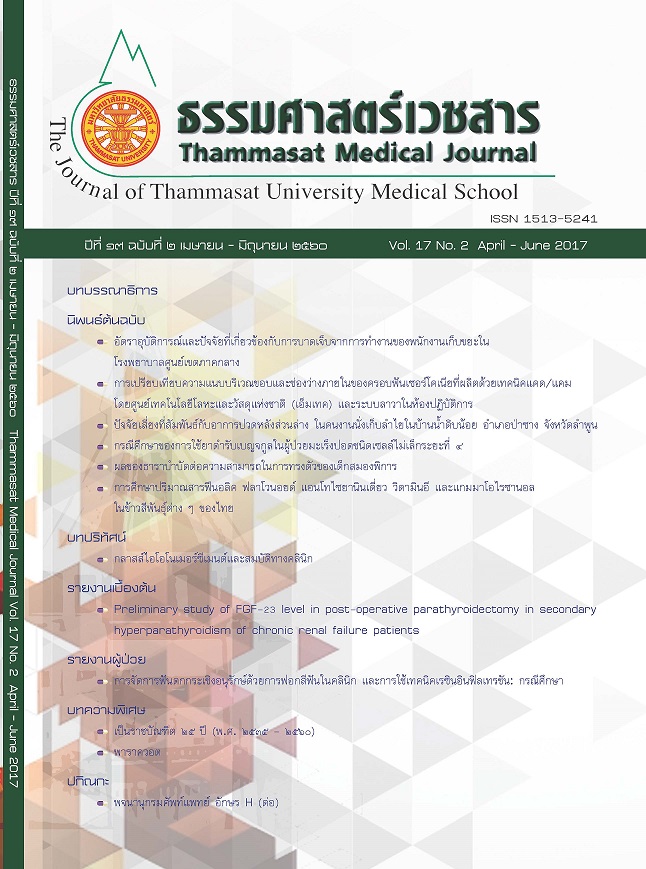Study on total phenolics compound, total flavonoids, total monomeric anthocyanins, vitamin E and gamma-oryzanol in pigmented Thai rice
Keywords:
กรดพอลิอัลคีโนอิก, กลาสส์ไอโอโนเมอร์ซีเมนต์, แก้วฟลูออโรอะลูมิโนซิลิเกต, Polyalkenoic acid, Glass-ionomer cement, Fluoroaluminosilicate glassAbstract
Glass-ionomer cement is a result of combining of fluoroaluminosilicate glass as powder and the polyalkenoic acid as liquid which set by acid-base reaction. Advantages of glass-ionomer cement which are different from other types of direct restorative materials; providing good adhesion to both enamel and dentin by chemical bond, fluoride release and uptake abilities, good biological compatibility and the coefficient of thermal expansion similar to dentin. Glass-ionomer cement can be classified into different types according to modification of acid or type of reinforcement materials. Meanwhile, glass-ionomer cement is continuously developed in terms of improved physical properties, biological properties and esthetic consideration. At present, this cement is widely used as a single restorative material or used with other materials such as amalgam or resin composite.
กลาสส์ไอโอโนเมอร์ซีเมนต์ เป็นวัสดุที่เกิดจากการผสมระหว่างผงแก้วฟลูออโรอะลูมิโนซิลิเกต และส่วนเหลวที่มีกรดพอลิอัลคีโนอิกเป็นองค์ประกอบหลัก โดยก่อตัวด้วยปฏิกิริยากรด-ด่าง ข้อดีของกลาสส์ไอโอโนเมอร์ซีเมนต์ที่แตกต่างจากวัสดุบูรณะชนิดอื่น ๆ คือ ให้การยึดติดที่ดีทั้งกับเคลือบฟันและเนื้อฟันด้วยพันธะเคมี สามารถปลดปล่อยและดูดสะสมฟลูออไรด์ มีความเข้ากันทางชีวภาพที่ดี และมีค่าสัมประสิทธิ์การขยายตัวเมื่อมีการเปลี่ยนแปลงอุณหภูมิที่ใกล้เคียงกับเนื้อฟัน กลาสส์ไอโอโนเมอร์ซีเมนต์สามารถแบ่งได้เป็นหลายประเภท ขึ้นอยู่กับการปรับสถานะของกรด หรือสารดัดแปร ขณะเดียวกันกลาสส์ไอโอโนเมอร์ซีเมนต์ยังได้รับการพัฒนาอย่างต่อเนื่อง โดยปรับปรุงสมบัติทางกายภาพ ชีวภาพ และความสวยงามให้ดียิ่งขึ้น ปัจจุบันมีการนำกลาสส์ไอโอโนเมอร์ซีเมนต์มาใช้อย่างแพร่หลาย โดยสามารถนำมาใช้เป็นวัสดุบูรณะฟันเดี่ยว ๆ หรือสามารถนำมาใช้ร่วมกับวัสดุบูรณะอื่น ๆ เช่น อะมัลกัม หรือ เรซินคอมโพสิตได้



